The Secret Lives of Women
Examining a hidden book of poetry to find meaning in the life of our grandmother and what she might share with us. And a Cento poem revealed...
Secrets
The bright flash of light followed by window rattling booms wakes me as a young girl on a hot, humid Florida night. There is no rain pelting the slightly open awning windows of my bedroom. Only the whine of the storm wind sweeps through. The terrazzo floors of a thoroughly modern 1960’s home are warm under the feet. The powdery smell of the fresh cinder block construction weighs heavy in the air.
Mixed with the ozone from the storm, the smell smothers me, new to this home, this state, these storms. I seek the open air of the large screened patio unafraid of the thunder rolling away to echo in the dark. I’m drawn to the violent, arcing lances of lightning thrown from black night to the ground of the vast empty field behind this home.
As I turn the corner from the hall to the open living room, I see my grandmother framed in the open wall-to-ceiling sliding glass doors. They are open to the screened patio, open to the wind and fury of the thunder and lightning strikes. In the black night lit by the strobes of lightning, my grandmother takes on an ethereal timelessness. She is dressed for the night in a flowing peignoir robe that billows in the wind.
At that moment we create the bond of our secret, drawn to the power of storms. It is a quality she would keep in my life as the years passed; a wise woman of secrets and talent and love.
Discoveries
Some 60 years later, my grandmother broke her hip at the age of 94, sliding off the edge of her bed while she was counting her money. I’m talking a stash of money. Drug dealer level stashes of money she had hidden in her little apartment. This catastrophe took a formidable, mysterious woman who still lived alone to her demise a year later.
My sister and I went total CSI when we came to clear out her apartment. We knew she had valuables, cash, photos, and other possessions hidden away as immigrants who crossed the sea often did. We felt all the clothes in her closets for valuables hiding in pockets or sewn into hems and linings. We looked for hidden layers in drawers, things taped under or behind. We opened every box, every dusty suitcase.
Our fingers and handprints were left all over the place a ghostly reminder of a life well-lived and hidden and waiting to be discovered. Looking through her bookshelf we found what was her formerly extensive collection whittled down to the most important to her over the years.
Lined up on the shelf was an old stenographer’s pad with her Spanish notes, a small Spanish language primer, a translated The Twelve Caesars, Gaius Suetonius Tranquillus, and a slim volume of poetry “Poems for Every Mood”.
This book of poetry was striking in its antiquity, the binding was coming undone, the pages brown and fragile and flaking off at the edges. Holding the book felt as if we possessed her in our hands.
My grandmother loved reading and in other homes always had books with her. She read the newspaper, the financial section especially, daily. This book must have meant something to be kept over all the years.
My sister and I beheld the book as if it were an artifact discovered, an ancient time to be revealed, a mystery to be solved. We felt the power it possessed as it held our gaze. And that book did not disappoint.
Mysteries
As we opened it, on the first page a small sticker, outlined in red, held the handwritten dedication, “Lunch for Marie who is starved for something to read”. It is crisp and clear lettering, precise. The L in lunch is elegantly double struck, the f in ‘for’ curls enticingly at the top, the crossing of the t in ‘starved’ misses the mark and seems almost a fleeting accent for the script. There is no punctuation, no comma, no period to end the sentence, then it is signed boldly “Raj” 11/6/1940.
My sister and I look at each other. “Who is Raj?” we say together. We scour our memories for the name. Did she mention him? My grandmother had a very eclectic circle, our Aunt Mathilda was from Cairo, was that a connection? Did we meet him?
Then we moved on to do the math. How old was my grandmother in 1940? What would she have been doing with her days? How old was our mother? Our thoughts and equations quickly escalated to a frenetic pace as we realized we were well past the age my grandmother was in 1940, but more importantly, we had been that age.
We stood, holding the book as if we were all 32 years old again and she had given us the gift of sight. She was not our grandmother then. She was a young woman and we knew her and she had known us and still, she kept her secrets. The absolute possibilities of what this all meant came to light.
Revelations
We have an existence beyond the visible. We hold thoughts and desires and wishes and a love of music and art beyond what anyone is allowed to know. I knew at that moment I would keep that book and read every poem and try to discern what it meant to her. What message was my grandmother sending us? What final words of wisdom was she sharing about a life lived and the secrets that get us through.
Make no mistake, my grandmother was a queen, a true matriarch. We went to live with her and my grandfather after my father died. As children struck down by our own and our mother’s grief, we were oblivious to the drama that this solution to my mother’s situation brought us.
My grandfather had prepared to retire to Florida from New York and now they found themselves adding a room onto the house they were having built and taking on the care of their grandchildren. My grandfather would go back to work, my mother would work, and my grandmother would stoically take us all on.
The mystery of my grandmother was otherworldly. It was in those early days when I bonded in that storm. It was the era when, as children with my cousins visiting from New York, we would be mesmerized as we watched her cutting an apple on the kitchen counter as we stood at eye-level peering over the edge lined up like little birds waiting for our bite. A simple task that we were compelled to revere.
She was enchanting and demanding and a force to be reckoned with. Finding the book, she comes to us as more than just our grandmother, but a woman we did not know and would never know.
Poetry
I’ve taken the book and looked at every page, becoming more fragile with each handling. I feel that as the pages flake and chip away, it is her memory, her attachment to these pages that will be lost.
I wonder did she read this book alone. Did Raj read poems with her? There are checkmarks beside 23 of the poems and I’ve read every one, researched their authors, their meaning, and their era. Some checkmarks are bold, some are sweeping, and some with a little hitch at the beginning. I try to give meaning to everyone. Is the hitch a hesitation, the more sweeping check an affirmation, the small checks an equivocation?
As a labor of love, I took every poem and found myself researching the authors. The poems she checked range from one written by a soldier in WW1 about the inevitability of death. Ultimately, that to which he would succumb in the war (I Have a Rendezvous with Death, Alan Seeger). Then to a lovely poem about walking to work through a park (in Chicago) perhaps drawing a connection for my grandmother walking through a park in New York City on the way to the garment factory where she worked (Ellis Park, Helen Hoyt).
She has checked works by Shakespeare, Edna St. Vincent Millay, Carl Sandburg, G.K.Chesterton, and others who I would research and get lost in their era, their story, and the meaning they tried to convey.
To that end, I created a Cento poem, taking lines from poems she had checked perhaps revealing the theme she meant and her appetite for beauty in words satisfied:
I Keep My Secret Still
Beautiful and rich is an old friendship,
Grateful to the touch as ancient ivory,
Smooth as aged wine, or sheen of tapestry
Where light has lingered, intimate and long.
I remember, I remember.
I keep my secret still
Who loves the rain
and loves his home
and looks on life with quiet eyes,
him will I follow through the storm
and at his hearth-fire keep me warm
Yet
I believe you are not all that is here;
I believe that much unseen is also here.
I keep my secret still
Let us walk in the white snow
In a soundless space
With footsteps quiet and slow
At a tranquil pace
Under veils of white lace.
Where
I have looked down the saddest city lane.
I have passed by the watchman on his beat
And dropped my eyes, unwilling to explain.
I keep my secret still
I am the master of my fate;
I am the captain of my soul
Yet
I have a rendezvous with death
On some scarred slope of battered hill
When spring comes round again this year
And the first meadow flowers appear
for
Nature I loved and, next to Nature, Art;
I warmed both hands before the fire of life;
It sinks, and I am ready to depart.
I keep my secret still.


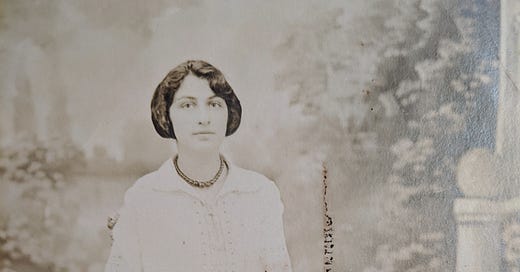


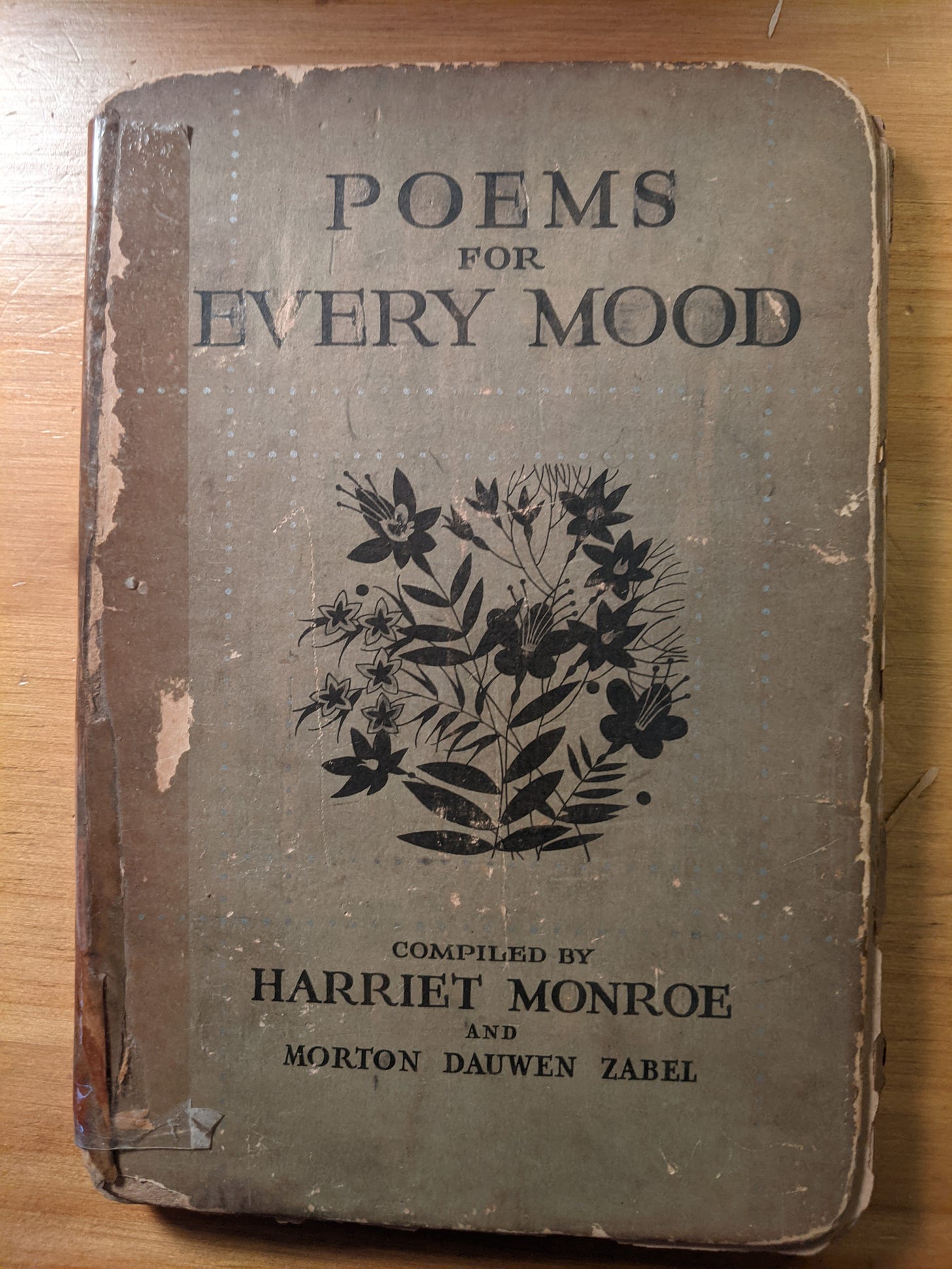
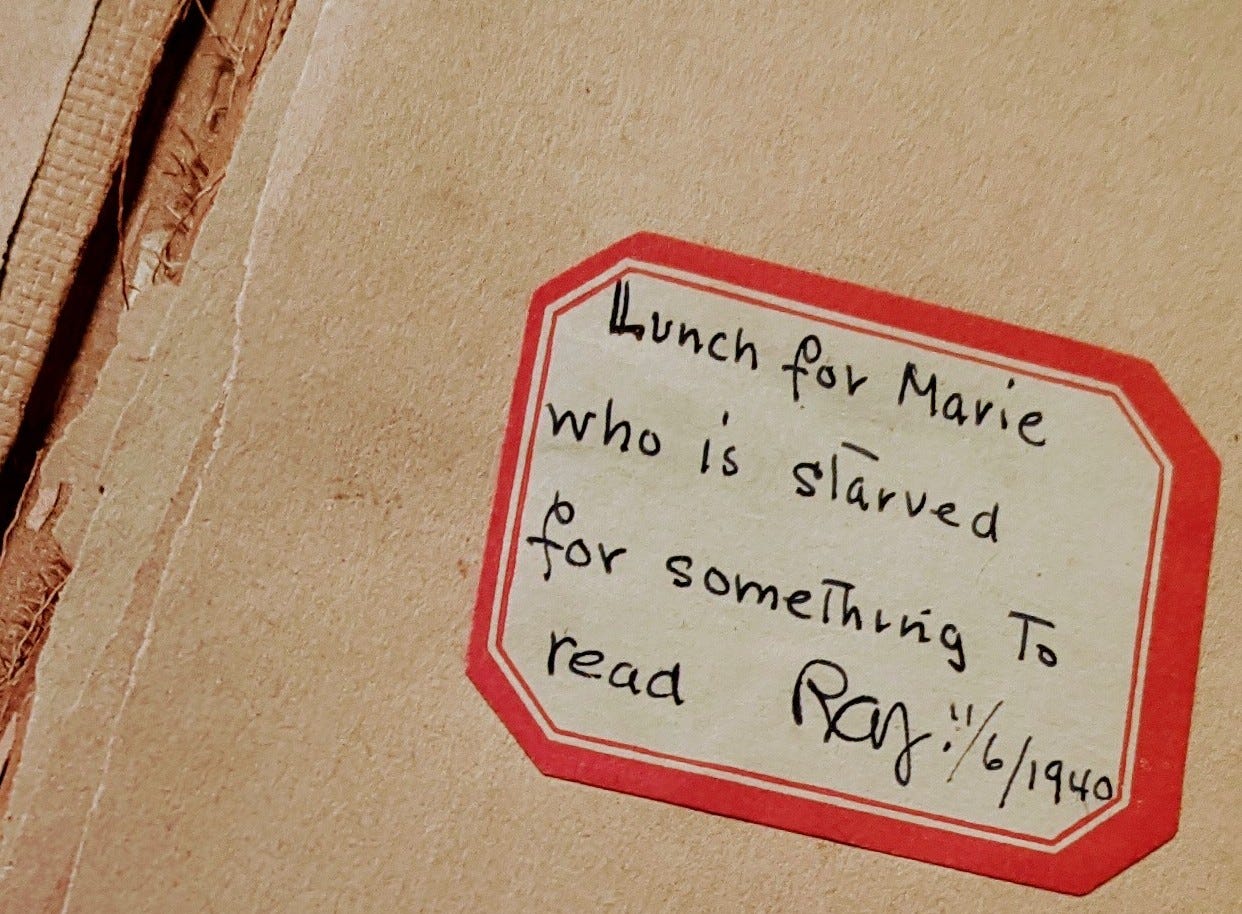
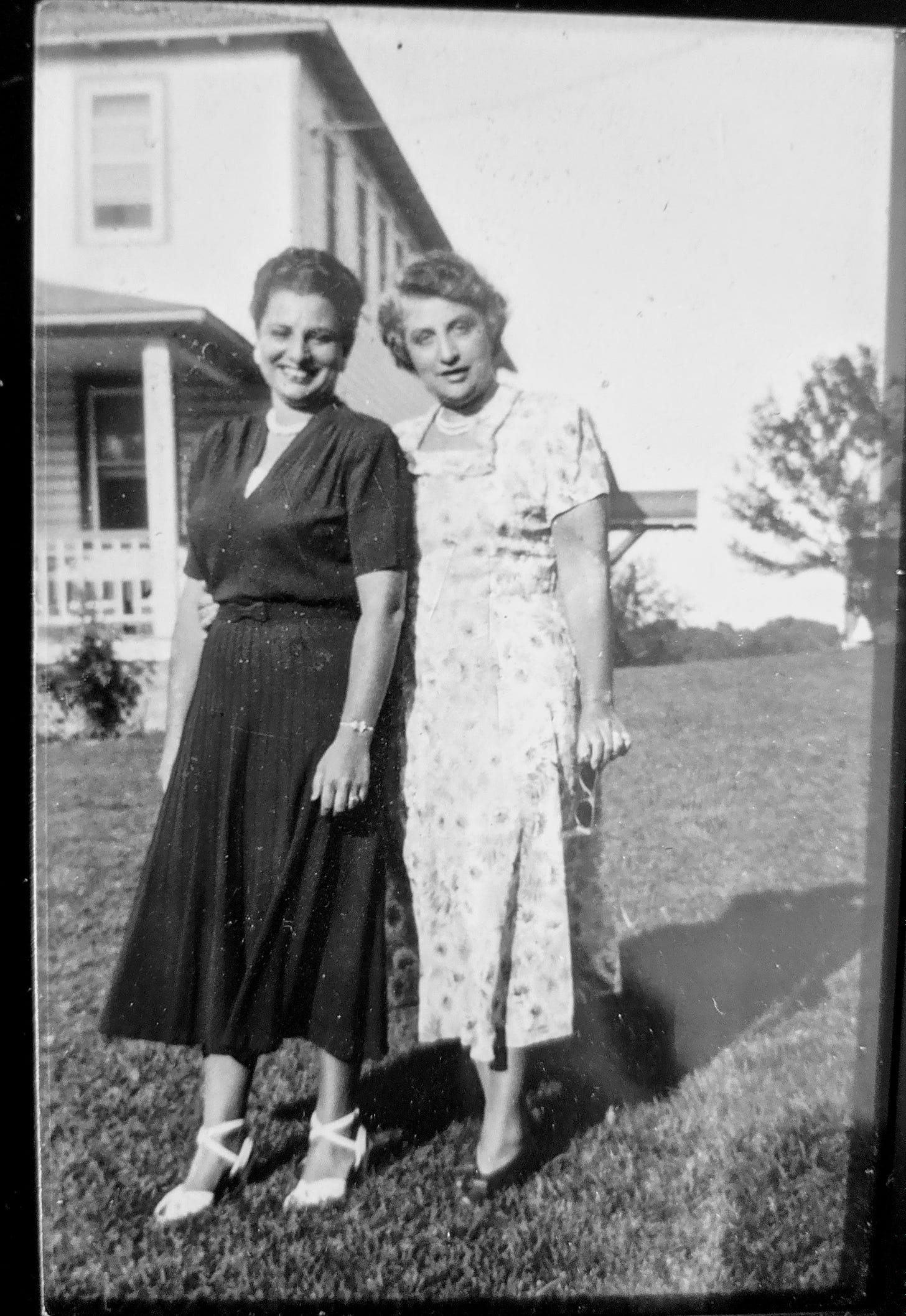
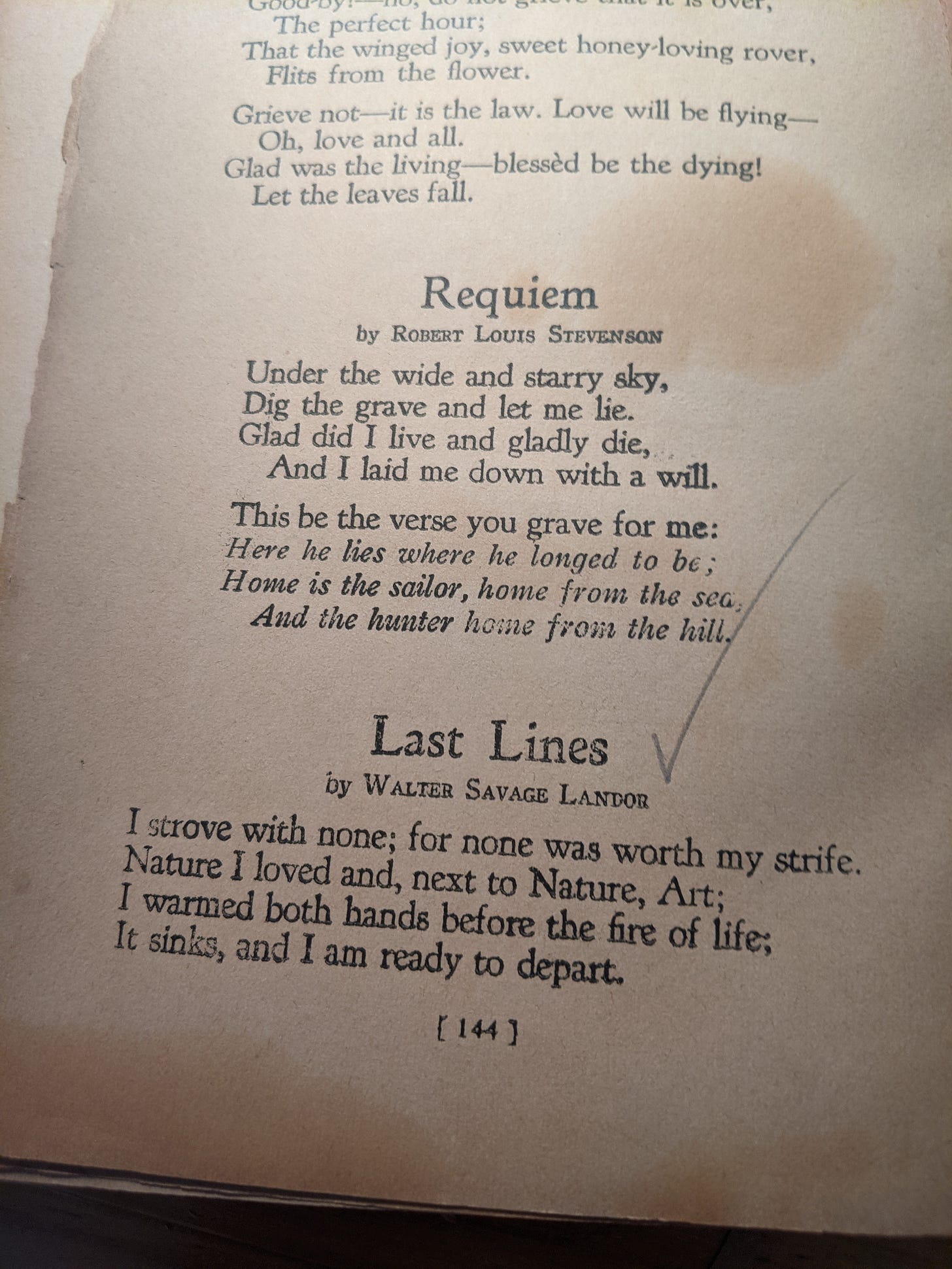
Beautiful
Oh gosh I loved reading this so much!